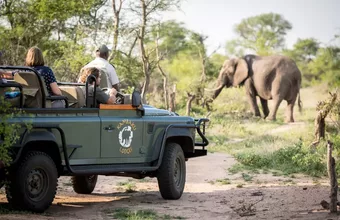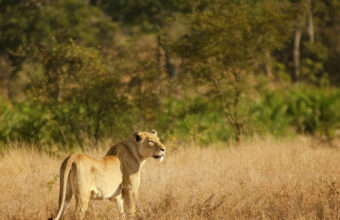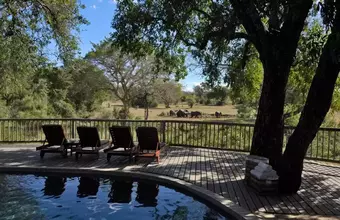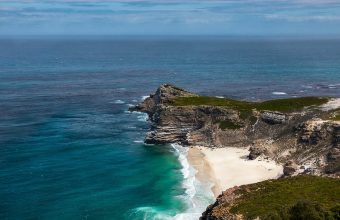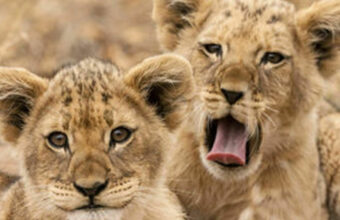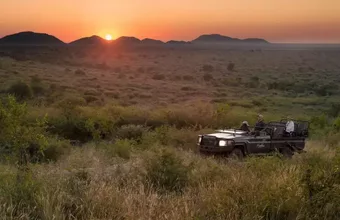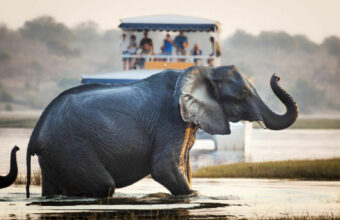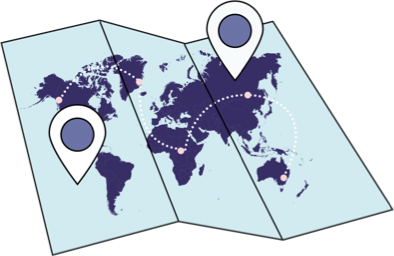When to go on safari in South Africa
Seasons and the best times for safari in South Africa
The best times for safari in South Africa: Quick reference
The overall best time to go on safari in South Africa is between May to September. This is South Africa’s dry season and wildlife is easier to spot in these months, as vegetation is lower and animals gather around waterholes.
Overall best time: May to September
High season: October to March
Low season: April to September
Best weather: September
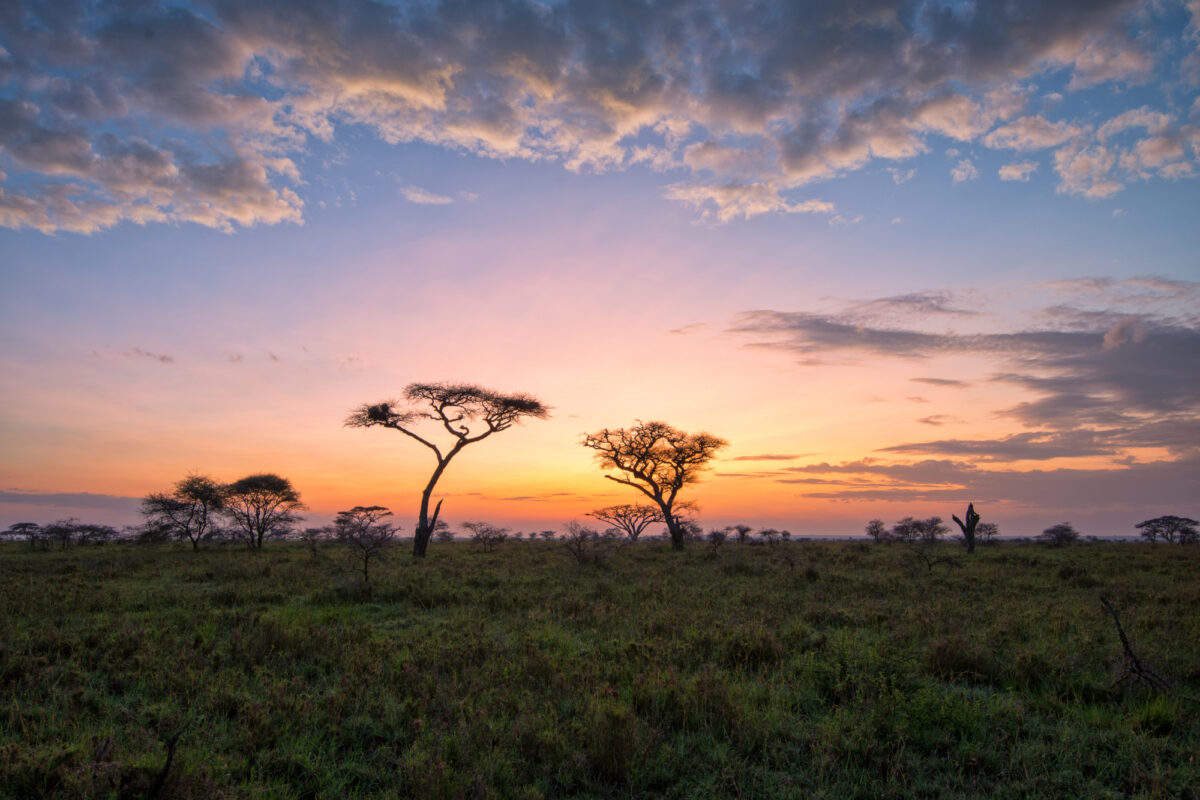
Sunset over the Savannah
The best time for safari in South Africa
Our safari expert recommends
Blessed with incredible geographical diversity, South Africa is truly a year-round destination. Each region offers something unique and it is always a good season somewhere in this diverse country.
The overall best time to go on safari in South Africa is between May to September. This is South Africa’s dry season, but also low season as temperatures drop for winter; don’t underestimate how long temperatures can fall overnight, particularly away from the coast. Wildlife is easier to spot in these months, as vegetation is lower and animals gather around waterholes.
It is possible to visit any of South Africa’s national parks during these months, but consider when to go if you plan on combining safari with other routes. For example, if combining safari with Cape Town, consider the summer months of November to March. For whale watching on the Western Cape, visit between June and November. For year-round sunshine and wildlife watching, KwaZulu-Natal is your best bet.
South Africa's best safari seasons
In general, the southern hemisphere summer of November to March is the wettest season, while the winter months between April and October are dry and mild. However, this is reversed in the southwest of the country around Cape Town, where the rain falls in the middle of winter.
Rainfall also varies dramatically from east to west; in parts of the Northern Cape and into the southern Kalahari, annual rainfall is less than 200mm, while Limpopo and Mpumalanga in the northeast often receive around five times that amount.
The east and west sides of the country are at the mercy of the Indian and Atlantic Oceans respectively. At the Cape of Good Hope, the warm Agulhas current of the Indian Ocean meets the cold Benguela current of the Atlantic, meaning the water temperature can be four degrees cooler on the west side of the Cape compared to the east.
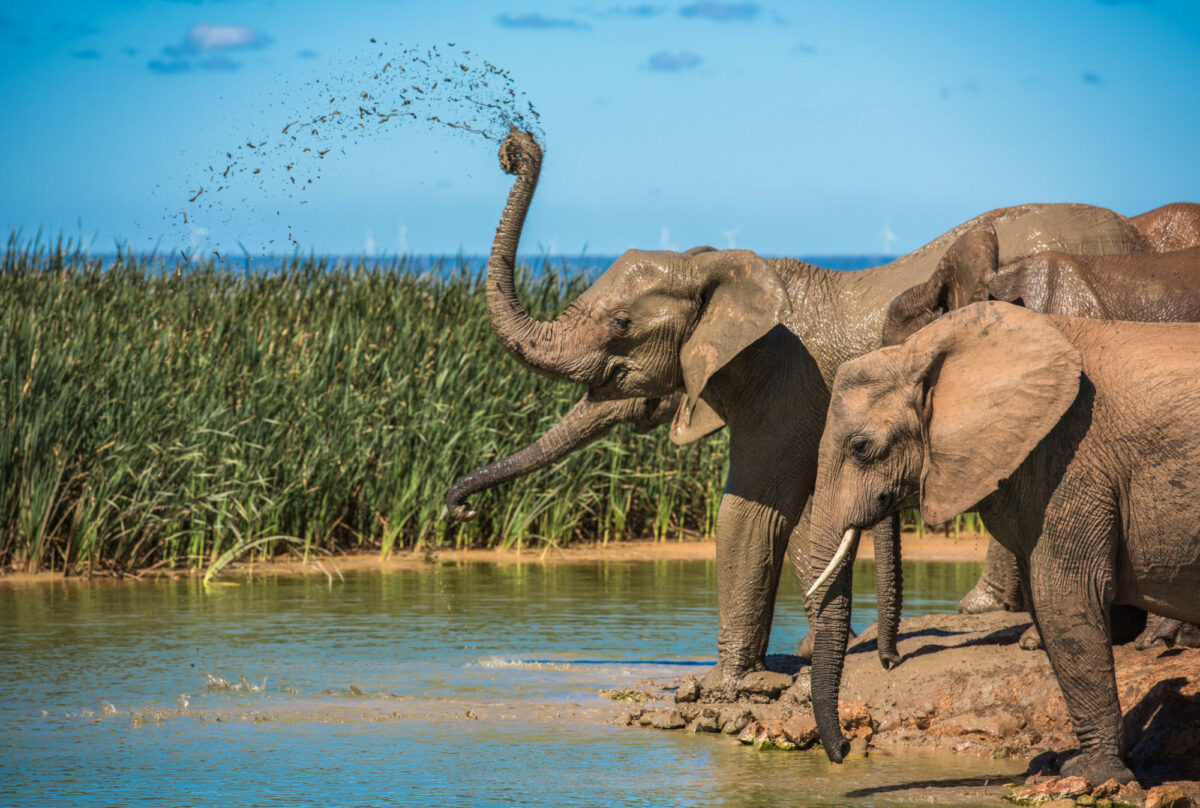
Elephant herd in Kruger National Park
South Africa's best months for safari
January is hot and dry on the Cape, and this coupled with South African school holidays makes the region very popular at this time of year; school holidays periods ripple out across the country throughout the year, creating mini high seasons, so always check when they fall. The Garden Route is stunning at the beginning of the year, with the dry weather drawing animals to come and drink at water holes. Baby penguins are born on Boulders Beach on the Cape in January and February.
March marks the start of autumn in South Africa but temperatures remain high. Rains often fall on Kruger at this time, thickening the bush and making wildlife harder to spot. Instead, head for the beaches in the south and soak up some late summer sun.
April and May are cooler still and can be an excellent time to visit the famous national parks, as rutting season begins and larger animals are out in force.
As the southern hemisphere winter takes hold the Cape can become cool and drizzly, so instead make for the north and east where temperatures are warmer and conditions drier, with July a great time to spot the major animals in national parks. If you do stay south, June is migration season for southern right whales along the Cape’s southern coast.
August brings spring to South Africa and gorgeous wildflowers bloom on the west coast until the early summer.
September is birthing season in the national parks and as the weather warms up across the country, this is a perfect month to combine regions before the summer rains set in.
This tail-end of the dry season has other advantages: as waterholes dry out, animals are drawn to the last remaining water sources, making them easier to find and see. Whales calve in Walker Bay from September until October.
Festivals and events
South Africa is host to a number of festivals throughout the year, starting on January 2nd in Cape Town with the Kaapse Klopse, Cape Town’s answer to Rio’s Carnival. The highlight is the Tweede Nuwe Jaar (Second New Year) street parade where you can watch hundreds of partygoers sing and dance past in extravagant costumes.
The autumn brings harvest season in the wine regions, and there is no better way to celebrate than the Robertson Valley Hands-On Harvest, a three-day wine and food festival in March. If that is not enough indulgence for you, the Knysna Oyster festival takes place every June or July.
Away from the dinner table, South Africa’s arts scene offers up plenty of choice, from the Cape Town Jazz Festival in March to the National Arts Festival in Grahamstown in July, as well as Kirstenbosch’s famous series of summer concerts in November.
If all that sounds too mainstream for your tastes, head to Afrikaburn, South Africa’s answer to Burning Man, a counter-culture festival held for five days in the autumn in the Tankwa Karoo in the Northern Cape.

